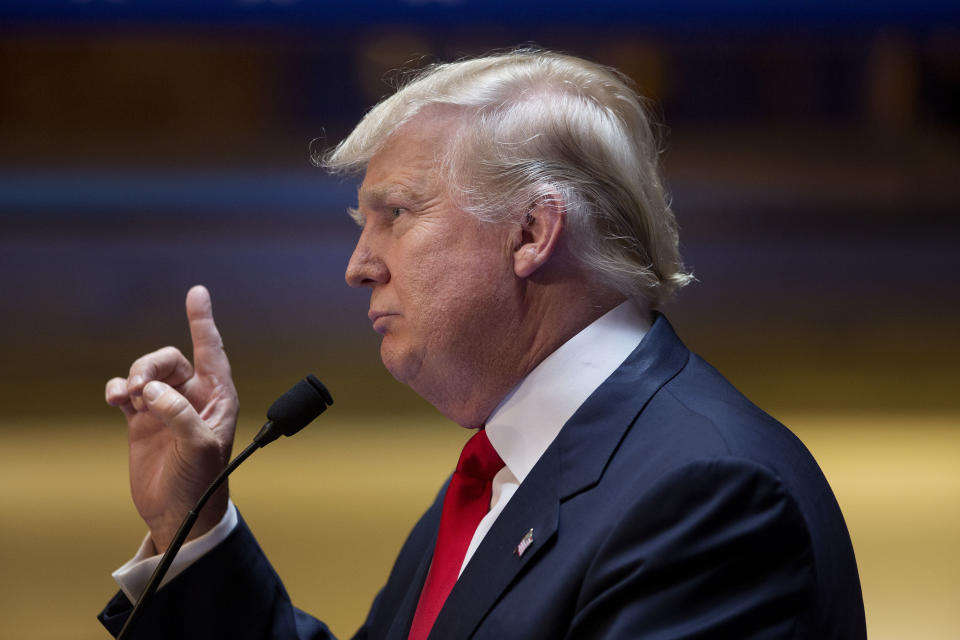Here's What's Happening With The Dreamer Program That Helped Lead To A Shutdown
WASHINGTON ― There are a few massive disconnects as Congress and the White House spar over a plan to reopen the government, but one of the biggest is whether relief for young undocumented immigrants, which Democrats are demanding in a deal, is an urgent problem.
The Trump administration and Republican leaders in Congress argue that it’s not, and that protecting so-called Dreamers doesn’t need to happen until a March “deadline.” Democrats, some Republicans and Dreamers themselves say otherwise.
The reality is complicated, thanks to a court ruling, a multistep process for ending the Deferred Action for Childhood Arrivals deportation relief process, and politicians’ apparent lack of understanding ― either genuine or feigned ― about what’s actually happening. But the idea that nothing will happen until March, or that losing DACA isn’t a big deal, is straight-up false.
This confusion was illustrated on Saturday, when Senate Majority Whip John Cornyn (R-Texas) took to the floor to criticize Democrats for causing a government shutdown. He acknowledged that he might be wrong about how the end of DACA worked ― a surprising statement, given that he’s one of the top Republican negotiators on a deal to fix it.
Cornyn said he wasn’t trying to downplay the urgency of the situation and believes something needs to be done. But he said that his understanding was that as of March 5, “current DACA recipients can no longer register again for an additional two years and qualify for an additional work permit.”
“I think ― but I could be mistaken ― that it doesn’t mean that they are subject to deportation,” Cornyn said. “What it means is that they can’t sign up again for another two years, and they will lose ― potentially lose their work permit.”
He was mistaken.
As previously mentioned, the current state of the DACA program is complicated, but here are the basic facts.
The Department of Homeland Security rescinded DACA on Sept. 5 at Trump’s suggestion, saying it was unconstitutional after Texas and other states threatened to sue (but before they actually did). At that point, the government immediately stopped accepting new applicants for the two-year deportation protections and work permits put in place under former President Barack Obama.
But Trump said he was giving Congress six months to act, pushing off the most dramatic effects of rescinding the program to March. DHS gave current DACA recipients whose protections were set to expire on March 5 or earlier just one month to pull together a $500 fee and send in renewal applications. Those whose DACA protections expire after March 5 were not allowed to apply for renewal, so Dreamers are set to begin to lose protections in greater numbers at that point, if Congress does not act.
This has allowed the administration and many Republicans to claim that nothing is happening until March, something that isn’t true. About 22,000 eligible DACA holders didn’t get their applications in on time, meaning they have already lost or will lose protections before March 5, at an average of 122 people per day. At least 1,900 people sent in their applications in time but were rejected because of mail delays. DHS decided to consider their applications but not expedite them, meaning some will likely lapse in the meantime.
Those 122 DACA recipients per day are the reason that advocates, Democrats and a handful of Republicans argue that it’s necessary to act before March 5. Former DACA recipients ― including those whose renewal applications were delayed in the mail ― are already being detained or losing their work permits. DACA doesn’t end March 5; it already did.
That brings us to what happens when Dreamers lose DACA protections. They do not, as Cornyn said, simply lose their work permits, although that is one piece of what happens. They also lose deferred action ― the process by which the administration rules them as an official nonpriority for deportation unless they violate DACA rules.
Losing DACA doesn’t necessarily mean that a person will be deported ― the talking point that all Dreamers will be removed from the country if Congress doesn’t act is hyperbole. But some almost certainly will, and all will be at risk.
DHS officials have said that former DACA recipients would not be a priority for deportation, which Cornyn echoed. But officials have balked at the idea that they should look the other way if they come across people they can remove, even if they’re not priorities ― meaning former DACA recipients can easily wind up detained and deported.
It will also take time for any legislative solution to be implemented, three former secretaries of the Department of Homeland Security warned in a letter urging Congress to act this month. It took two months from the time Obama announced DACA to begin accepting applications. The former DHS secretaries said that even if a bill is passed this month, it would be difficult to get it up and running by March.
Republicans do have one piece of evidence on their side to argue that a DACA fix doesn’t need to be immediate, but it’s a tenuous one. Trump ended DACA, but a court resurrected it earlier this month by ruling that the administration must begin accepting renewal applications again. That means that Dreamers who hold or have held DACA can, for the moment, reapply. Depending on how the court battle plays out, that could keep DACA alive for years.
That’s not much of a comfort to Dreamers either, however. The Department of Justice appealed the ruling and is asking the Supreme Court to consider the case, showing that Trump is committed to taking down DACA. The program could shutter again at any time. And even as it remains open, it will take time for the government to review and approve renewal applications, which could cause people to lose protections and work permits in the meantime.
Sen. Jeff Flake (R-Ariz.), who voted against a government funding bill on Friday night and is pushing for a bill to grant Dreamers legal status, laid some of this out for Cornyn on the Senate floor, noting that some DACA recipients are already losing their status and that courts are considering what should happen with the program.
“The problem is, even if it’s not deportation on March 5 ... they can’t get work permits, they won’t be able to register for school in certain circumstances,” Flake said. “So they are left in limbo, and that’s not fair to them.”
Also on HuffPost
April 2015

June 2015

August 2015

September 2015

November 2015

February 2016

March 2016

April 2016

July 2016

September 2016

September 2016

Love HuffPost? Become a founding member of HuffPost Plus today.
This article originally appeared on HuffPost.

